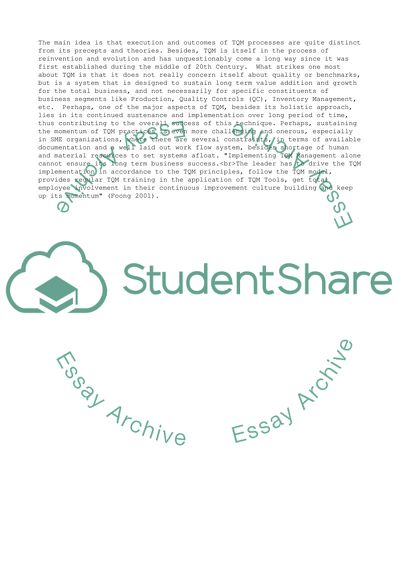Cite this document
(“Total Quality Management (TQM) Essay Example | Topics and Well Written Essays - 2250 words”, n.d.)
Retrieved from https://studentshare.org/management/1562755-total-quality-management-tqm
Retrieved from https://studentshare.org/management/1562755-total-quality-management-tqm
(Total Quality Management (TQM) Essay Example | Topics and Well Written Essays - 2250 Words)
https://studentshare.org/management/1562755-total-quality-management-tqm.
https://studentshare.org/management/1562755-total-quality-management-tqm.
“Total Quality Management (TQM) Essay Example | Topics and Well Written Essays - 2250 Words”, n.d. https://studentshare.org/management/1562755-total-quality-management-tqm.


